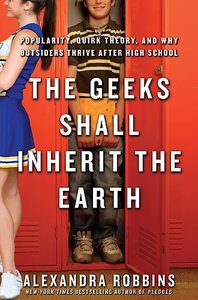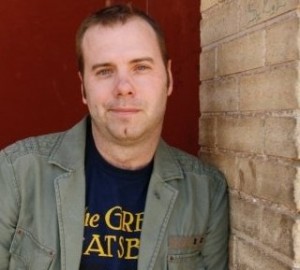 A couple weeks ago, we discussed the importance of letting your kids be weird, based on a passage in Alexandra Robbins’ new book, The Geeks Shall Inherit the Earth. In the book, Robbins conjectures that teenage outcasts often are poised for more success beyond high school than their more popular peers. She calls this “quirk theory.” I wanna dig into it a little more.
A couple weeks ago, we discussed the importance of letting your kids be weird, based on a passage in Alexandra Robbins’ new book, The Geeks Shall Inherit the Earth. In the book, Robbins conjectures that teenage outcasts often are poised for more success beyond high school than their more popular peers. She calls this “quirk theory.” I wanna dig into it a little more.
Her definition of “quirk theory,” from the book:
QUIRK THEORY: Many of the differences that cause a student to be excluded in school are the same traits or real-world skills that others will value, love, respect, or find compelling about that person in adulthood and outside of the school setting.
Citing teen outcasts like J.K. Rowling (a self-described misfit and daydreamer), Bruce Springsteen (who said, “I was on the outside looking in”), and Tim Gunn (self-described as “a classic nerd”), Robbins suggests that popularity in high school is no guarantee of success and satisfaction in adulthood, because the “conventional notions of popularity are wrong.”
What if popularity is not the same thing as social success? What if students who are considered outsiders aren’t really socially inadequate at all? Being an outsider doesn’t necessarily indicate any sort of social failing. We do not view a tuba player as musically challenged if he cannot play the violin. He’s just a different kind of musician. A sprinter is still considered an athlete even if she can’t play basketball. She’s a different kind of athlete. Rather than view the cafeteria fringe as less socially successful than the popular crowd, we could simply accept that they are a different kind of social.
Our problem is that we equate popularity and success, but popularity is really due to having a certain category of social skill — and it’s not a skill everyone has. And in many cases, it’s not exactly a positive skillset. It involves a willingness to conform to popular norms and often to step upon people as you climb the social ladder. (Also, in most cases, it requires a willingness to sleep around and drink large quantities of alcohol.)
When I was in high school, I wanted to be popular. I wasn’t. I was far from an outcast, but I often felt on the outside looking in at the group I wanted to be a part of.
Today, as a parent, I have to fight the tendency to live vicariously through my kids. Because I wasn’t popular, I secretly hope they will be popular, and well-liked, and surrounded by friends.
But I’m pretty sure that’s a bad idea. Is that something I want for their sake? Or for my own? Because the more I read of Robbins’ book, it becomes clear that school-age popularity is only a “good” thing between the years of 13-19. Once you escape the teen years, it matters little. Those glory days are gone. But the things that might have put you on the outside looking in as a teenager will be the very things that lead to a full, successful life.
Something for us parents to think about.
What about you? Were you on the inside or outside as a teenager? And how does your social position then impact your parenting today?

